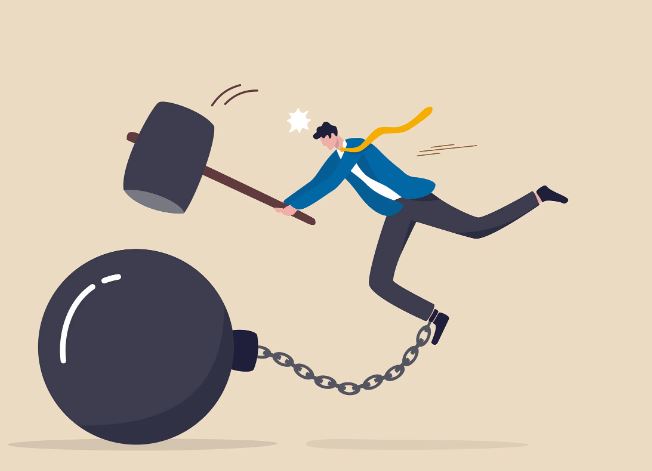


 10:43:28
10:43:28  2024-01-29
2024-01-29  1391
1391

Knowing why you have a bad habit can help you break it. Most habitual behaviors are patterns that have evolved because they’ve been rewarded in some way. For instance, they might make performing a common task or dealing with emotions easier. As licensed psychotherapist Lauren Urban says, “learning the rituals around [a habit] helps build new habits.” Note when you reach for this habit, and then ask yourself why you’re doing it—how does it make you feel, and what triggers it?
Break smaller habits to increase your motivation. Some habits can be difficult to change because the solution may seem daunting. As life coach Guy Reichard reiterates, “Better choose a safe and modest goal that we can achieve and continue to build on than a massive goal.” So, split your goals into small, achievable steps. This will reward you sooner, and as you find success in the small steps, it’ll increase your drive to meet your ultimate goal.
Choose something positive to replace your bad habit with. The first step in breaking a bad habit is developing a true desire to change your life. Think about how you can improve your life—what do you want to do instead of your habit?
Figure out what, when, and how you’ll break your unwanted habit. Once you understand what triggers your habit and the reward, you can make a plan that swaps your habit with healthy, achievable goals and minimizes triggers. Make a list of things you must do to reach your goals and drop the habit.
The space around you could be triggering a specific emotion or habit. Breaking a habit could be a matter of reducing situational triggers until you can develop new ways of dealing with them. So, clean up your desk, rearrange the furniture, or leave the house to resist temptation and clear your head.
Make doing the habit more difficult so it feels like a hassle. If something’s hard to do, you’ll likely move on to an easier alternative or not engage in the activity at all. These barriers can be in the form of physical obstacles or small punishments.
Give yourself grace and compassion. Behavioral conditioning doesn’t happen overnight. Breaking a habit can take time, so be patient and gentle with yourself. You’re only human. You may run into hiccups or obstacles, but that’s okay. Being harsh to yourself won’t help motivate you.
Reality Of Islam |
|

Batteries p

Some 1.2 bi
 9:3:43
9:3:43
 2018-11-05
2018-11-05
10 benefits of Marriage in Islam
 7:5:22
7:5:22
 2019-04-08
2019-04-08
benefits of reciting surat yunus, hud &
 9:45:7
9:45:7
 2018-12-24
2018-12-24
advantages & disadvantages of divorce
 11:35:12
11:35:12
 2018-06-10
2018-06-10
 6:0:51
6:0:51
 2018-10-16
2018-10-16
 8:3:0
8:3:0
 2018-06-21
2018-06-21
 10:43:56
10:43:56
 2022-06-22
2022-06-22
 3:42:22
3:42:22
 2021-12-24
2021-12-24
 9:42:16
9:42:16
 2022-10-19
2022-10-19
 10:47:11
10:47:11
 2022-11-22
2022-11-22
 10:55:53
10:55:53
 2022-06-13
2022-06-13
a hero waters thirsty wild animals
 9:4:9
9:4:9
 2022-01-06
2022-01-06
 5:41:46
5:41:46
 2023-03-18
2023-03-18
| LATEST |